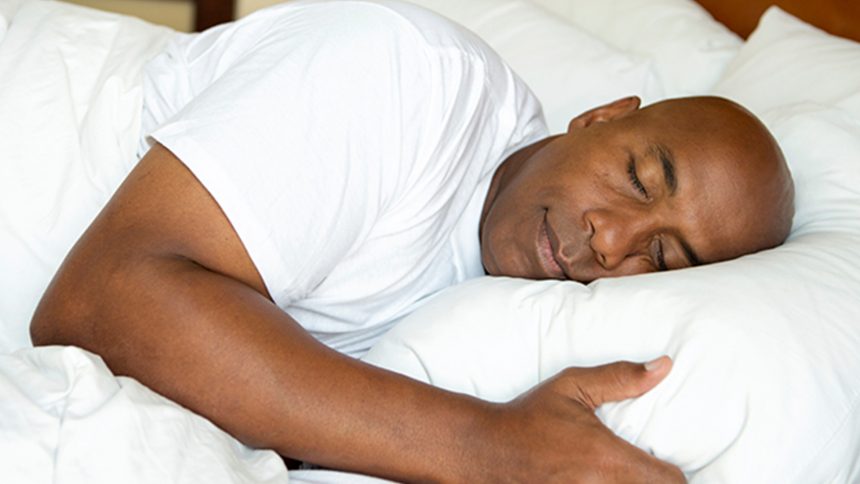Sleep and psychological and mental health are very much connected. Having less sleep can be a predictor of mental problems down the road while having mental problems can be a predictor of poor sleep. According to the Mental Health Foundation, up to 30 percent of people in the UK are afflicted with insomnia. Insomnia refers to a condition where a person has problems staying or falling asleep.
With so many UK citizens sleep deprived, psychologists are emphasizing the importance of sleep to prevent the instance of psychological conditions. Between 50 to 80 percent of the patients seeking medical attention from a psychiatric practice suffer from chronic sleep issues. This is significantly higher than the general population where only 10 to 18 percent suffer from sleep issues. Most of the people suffering from sleep problems typically suffer from mental problems that include attention deficit hyperactivity disorder, bipolar disorder, depression, and anxiety.
Conventional wisdom viewed sleep disorders and insomnia as symptoms when treating psychiatric disorders. However, according to Dr. Williams Waters, a sleep researcher Full Professor and Director at LSU, sleep problems may increase the risk of or even directly lead to the development of psychiatric disorders. This research could be doubly beneficial since treating the sleep problem could also resolve the psychological and psychiatric issues.
While there is not much understanding of the connection between mental health and sleep, psychologists believe that a good night’s sleep might be good for emotional and psychological resilience. On the other hand, chronic sleep disorders may result in emotional issues and negative mental states.
Nonetheless, the following are some of the associations that studies and psychologists have found between sleep disorders and psychiatric states.
Sleep and Accidents
According to the Sleep Council, people who report chronic levels of insomnia tend to develop all manner of psychiatric problems as compared to people with normal sleeping patterns. Sleep issues that may last for just a few days can significantly impair your ability to accomplish tasks, cope with minor irritations, and focus, all of which can put a lot of strain on your relationships. It is not only those that are around you that may be impacted, as lack of sleep can result in car accidents and also in other places of work such as the operating room in the hospital.
Unpredictability
Having insomnia often leaves you on edge and prone to overreact when you are dealing with other people. The reason for this is that being sleep deprived makes you lose your level-headedness. According to Talma Hendler a sleep researcher, lack of sleep reduces the capacity of the brain to determine what is more important in human relationships. A sleep-deprived brain believes that everything is important, which makes one operate on high alert instinctive mode. This means that small things such as the barista getting your order wrong or missing the bus can make you feel very agitated. Such a mindset may make you feel like any small thing going wrong is a crisis.
Depression
Sleep problems and depression go hand in hand. Sleep disorders and insomnia are very good predictors of depression. According to a 2008 study by Daniel J. Taylor on Insomnia and Depression, insomnia is a risk factor for depression. Sleep problems and insomnia also impact the outcomes of patients suffering from depression. Moreover, psychologists assert that patients suffering from depression that are also afflicted with insomnia are less likely to respond well to therapy as compared to normal patients. Depressed patients who have sleep problems and are insomniacs are also more likely to have suicidal thoughts as compared to those with normal sleep. Insomnia thus instigates, perpetuates and exacerbates depression.
Anxiety
Chronic sleep disorders increase your emotional vulnerability, anxiety, depression, and negative mental states. Sleep and anxiety are intertwined since sleep plays a vital role in recharging your body and brain. Not getting enough sleep means that your brain will not reset, which makes it harder to deal with the stresses of daily life. Moreover, sleep issues can cause even more anxiety as the more you try to force yourself to sleep the more anxious you will become. This may become a self-perpetuating cycle that can drain you emotionally, physically and mentally. Sleep disorders could also worsen anxiety disorders such as PTSD, as insomnia can result in retention of negative emotional memories that significantly reduces the effect of anxiety therapies.
ADHD
About 25 to 50 percent of children with ADHD have sleep disorders that include restless slumber, shorter sleep duration, and difficulty falling asleep. According to the chair of the European Network of ADHD Dr. Kooij, sleeping difficulties and ADHD are two sides of the same mental and physiological coin. For instance, Children with periodic limb movement disorders and restless leg syndrome are at great risk of becoming emotionally unstable, inattentive and hyperactive.
Conclusion
Sleep is essential for overall health and wellbeing. In recent times, studies have shown that sleep disorders and insomnia can result in psychological and psychiatric disorders. Some of the disorders include anxiety, irritability, depression, unpredictability, and ADHD. Sleep is a laundry cycle where your brain and body get reset and ready to deal with the stresses of daily living. As such, psychologists emphasize a good night’s sleep as one of the most effective ways not only of reducing the effects of psychiatric and mental conditions but also of preventing them.

